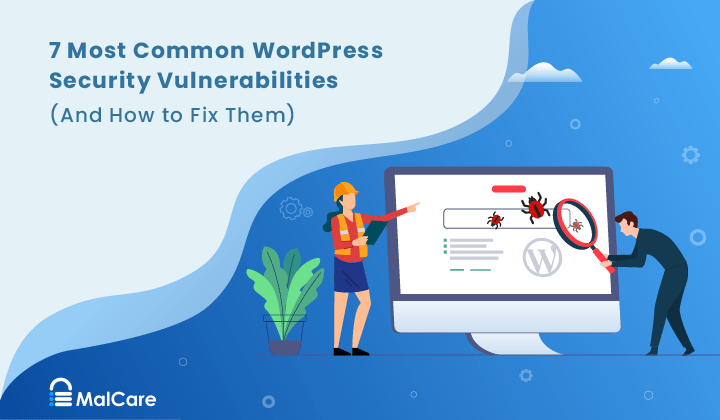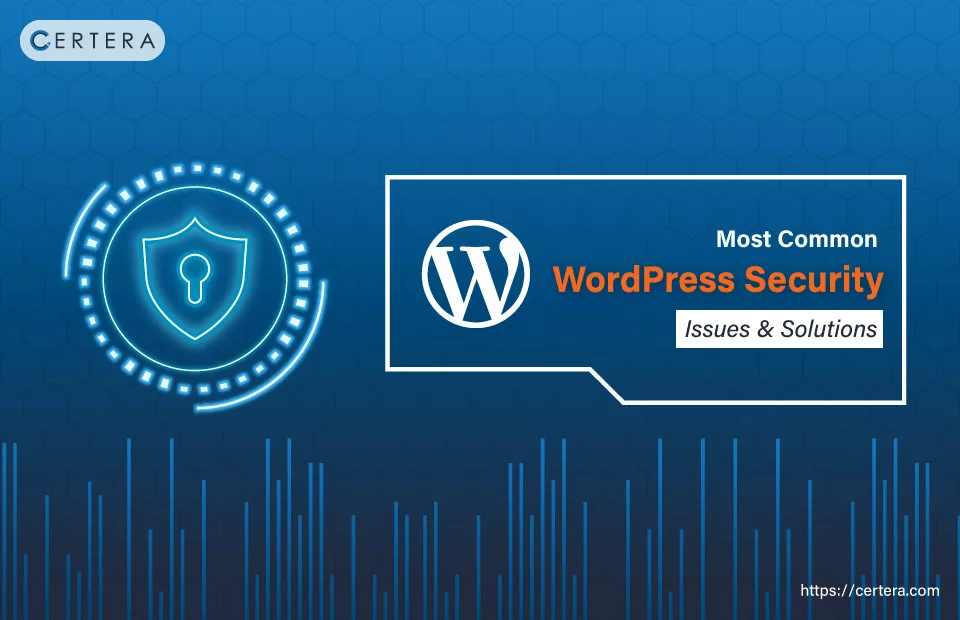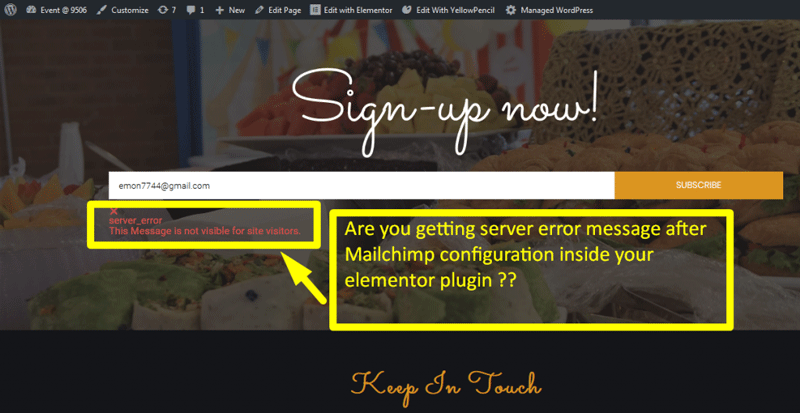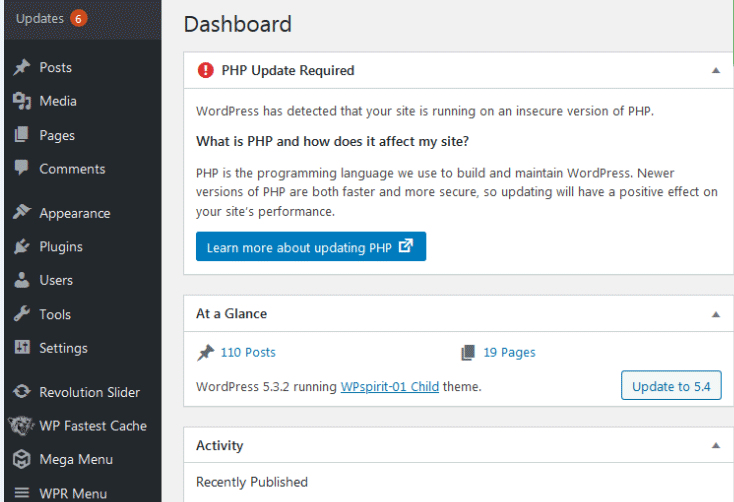1. Common WordPress security issues include weak passwords, outdated plugins, and themes, lack of SSL, and malware.
These vulnerabilities can lead to site hacks and data breaches. WordPress is a popular content management system, making it a prime target for cyberattacks. Securing your WordPress site is essential to protect sensitive information and maintain user trust. Weak passwords are easy for hackers to crack, and outdated plugins and themes often contain security flaws.
Lack of SSL certificates can expose data during transmission, while malware can infiltrate your site through various means. Understanding these common security issues helps in implementing effective measures to safeguard your WordPress site. Regular updates, strong passwords, and proper security practices are vital for maintaining a secure online presence.

Credit: www.malcare.com
Weak Passwords
Weak passwords make it easy for hackers to access your site. Simple passwords can be guessed quickly. This puts your data at risk. Hackers can steal your information. They can also harm your website. Users may lose trust in your site. This can hurt your business.
Strong passwords protect your site better. Use a mix of letters, numbers, and symbols. Avoid common words or phrases. Change your password often. Do not share your password with anyone. Use a password manager to keep track. This keeps your site safe and secure.
10 Best WordPress Security Plugins: Ultimate Protection Guide
Outdated Plugins
Outdated plugins pose a significant security risk on WordPress sites. They can introduce vulnerabilities hackers exploit to gain unauthorized access. Regular updates ensure enhanced protection against cyber threats.
Risks Of Outdated Plugins
Outdated plugins pose serious risks. Hackers can exploit security holes in old plugins. This can lead to data breaches and loss of information. Sometimes, outdated plugins can break your site. Your visitors might see errors or the site might not load.
Updating And Managing Plugins
Always keep plugins up to date. Updates often fix security vulnerabilities. Regularly check for updates in your WordPress dashboard. Delete plugins you don’t use. Unused plugins can still be a risk. Choose plugins from trusted sources only. This ensures they are safe and regularly updated.
Unsecured Themes
Unsecured themes can be very risky. Hackers can use them to get into your site. They might steal your data or add malware. This can hurt your site’s performance. Users might leave your site if they find it unsafe. Always check themes before using them.
Choose themes from trusted sources. Sites like the WordPress theme repository are good. They review themes for security. Also, look at user reviews and ratings. High ratings mean the theme is likely secure. Update themes regularly. Updates fix security issues. Avoid free themes from unknown sites. They might be full of bugs.

Credit: m.youtube.com
Lack Of Backups
Lack of backups leaves WordPress sites vulnerable to data loss and hacker attacks. Regular backups ensure quick recovery from unforeseen incidents.
Consequences Of No Backups
Without backups, lost data cannot be recovered. This can cause a website to go offline. Businesses may lose customer trust. Important files could be permanently lost. Hackers can cause irreversible damage. No backups mean no safety net.
Implementing A Backup Strategy
Use a reliable backup plugin. Schedule backups regularly. Store backups in different locations. Test backups to ensure they work. Keep multiple backup versions. Secure backups with strong passwords.
10 Best WordPress Security Plugins: Ultimate Protection Guide
Poor User Permissions
Poor user permissions can lead to security breaches. Users with too many rights can damage your site. Hackers can exploit these permissions. Sensitive data might get exposed. Malware can be installed by accident. Users should only have the rights they need.
Assign roles based on the user’s job. Administrators have full control. Editors can manage content but not settings. Authors can write but not publish. Contributors can submit content for review. Subscribers can only read and comment.

Credit: certera.com
Additional Security Measures
Security plugins help protect your WordPress site. They offer features like firewalls and malware scanning. Some popular plugins are Wordfence and Sucuri. These plugins also provide login protection. This helps to block unauthorized access. Always keep your plugins updated. This ensures you have the latest security features.
Regular security audits help find vulnerabilities. You should check your site for malware and unauthorized changes. Use tools like SiteCheck or WPScan. These tools scan your site for threats. Also, review your user accounts. Remove any accounts that you do not recognize. Change passwords often to keep your site secure.
Frequently Asked Questions
Which Of The Following Is A Common WordPress Security Issue?
A common WordPress security issue is vulnerabilities in plugins and themes. Hackers exploit outdated or poorly coded plugins. Keep them updated.
Does WordPress Have Security Issues?
Yes, WordPress can have security issues. Regular updates, strong passwords, and security plugins help mitigate risks. Always stay vigilant.
What Makes WordPress Insecure?
WordPress can be insecure due to outdated plugins, themes, and core files. Weak passwords and poor hosting security also increase risks.
What Is Vulnerability In WordPress?
A vulnerability in WordPress is a security flaw that hackers can exploit. These flaws can lead to unauthorized access, data theft, or site damage. Regular updates and strong security measures help protect your site.
Conclusion
Securing your WordPress site is crucial for protecting your data. Address common security issues promptly. Regular updates, strong passwords, and reliable plugins can enhance your site’s safety. Stay vigilant and proactive to prevent potential threats. By doing so, you ensure a secure and smooth experience for your visitors.


